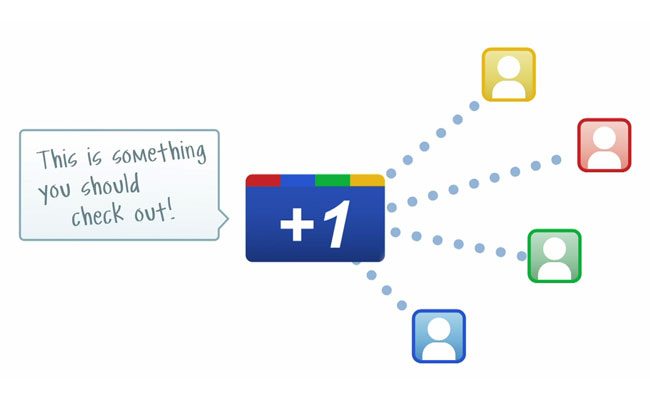Google’s Getting More Social with +1 (plus 1)
Google’s +1 (pronounced: plus one) button has the potential to add another billion to the coffers of Google. Google is notorious for failures but when they hit the ball it’s like Babe Ruth déjà vu. The +1 button is very similar in concept to Facebook’s “Like” button. However, there are many subtle differences that make the +1 something to pay attention to.
Facebook’s Like button encourages user’s to interact and share something with a group of selected “friends.” The power of the Like button is that people are more likely to act upon recommendations from people that they know vs. strangers. Like has also become popular as a quick and easy public rating system for websites, blogs and everything else on the web. The more likes and tweets your page has, the greater likelihood you have of going viral. While viral is nice, these spurts of publicity have a tendency to burn out pretty quickly just like the Flu. The Achilles heal of the Like button is that the Like carries with it only a limited duration of exposure either on a viewer’s wall or on a user’s News Feeds. Very quickly, the valuable personalized Likes are buried and whatever positive affects the Likes generated, dies.
Google’s +1 has the potential to overtake the Like button because of two positive advantages it has over Facebook’s little thumb. The first advantage is duration and the second is market penetration.
Google’s +1 doesn’t rely on a display platform like Facebook to be socially relevant to a user. Rather, +1s are displayed and integrated into Google search. Anytime a Google user is logged in and using Google search he/she is able to see the +1s from their friends along with their search results. Moreover, this feature extends to paid ads as well. Due to the contextual difference, +1s have the potential to become very powerful. For example, let’s say a friend of yours +1s a hundred restaurants all over the world and you really trust his taste. The next time you are in Chicago and want pizza your “Chicago Pizza” search will include his +1 pizza recommendation at the top of your search. Think about it, where are you going to go for pizza in Chicago?
Some reviewers have seen the “logged into Google requirement” as a limitation of the +1 button. However, this is irrelevant on smart phones and other mobile platforms. Moreover, having the ability to turn the +1 off during searches by logging out of Google may be important in some situations.
The second serious advantage Google’s +1 has over the Like button is the sheer size and diversity of Google’s businesses. Google is the most popular search engine, controls most of the advertising dollars on the Internet and owns high traffic sites such as Youtube, Blogspot and Google Maps. In addition, they are firmly entrenched in the mobile device market, have recently developed their own browser and a hundred other things. The +1 button will work seamlessly across all things Google and this dramatically enhances its usefulness to both users and advertising professionals.
Social media buzz from sites such as Facebook and Twitter is already incorporated into organic SEO rankings. The addition of Google’s own +1 will give Google more information and will likely be disproportionately weighted in their algorithms in the future. This fact alone will increase +1’s market penetration.
Moreover, +1s will increase click through rates. Physiologically people always want what they think other people want. Internet ranking systems are immensely popular and have fueled the growth of many websites. +1s inclusion in Adwords and because will influence click though rates and it’s likely that +1 will dramatically impact Adwords.
Another fascinating angle to +1 and Google’s development of social layers is that +1 should enhance search in general and diminish the pervasiveness of content farms and search junk. +1 at the moment is source agnostic but the entire reason social media tags work, (including Like and +1) comes back to the fact that a user will place a higher valuation on information based upon his/her perception of the source’s legitimacy, expertise and knowledge. Some recommendations are just more valuable than others and these are subjective distinctions. Source ranking is something search has never managed effectively.
As the Internet develops and grows the ways in which it can be used is constantly expanding and diversifying. It is difficult for any Internet marketer or web master to keep on top of all the new developments and it is tempting to just wait until a tool like the +1 is established before investing time and money into it. However, this is a Google product and a remarkably good idea. Moreover, the +1 tantalizingly lends itself to the possible introduction of a 100-point rating scale in the future and this would finally create a useful rating system for the Internet. Robert Parker made his name and radically changed the Wine Industry with his introduction of a 100-point scale for wine and Google could easily do the same in the future with +1.








